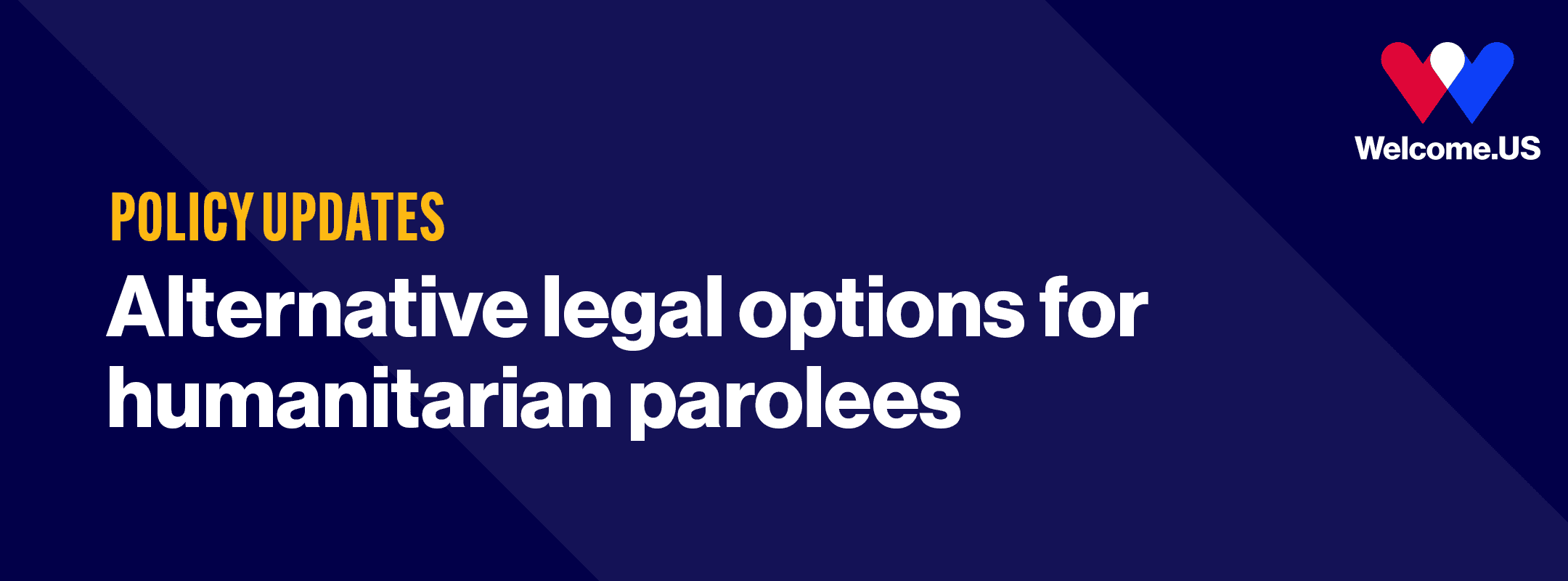Alternative legal options for humanitarian parolees

On May 30, the Supreme Court granted the Trump administration’s emergency request to terminate humanitarian parole status for individuals who arrived in the U.S. through the Processes for Cubans, Haitians, Nicaraguans, and Venezuelans (CHNV) sponsorship program. The ruling means humanitarian parole status for people sponsored through the CHNV program is terminated and the government can begin deportation proceedings, unless they have secured protection from deportation through another legal status, such as a pending asylum application. Learn more.
Applying for alternative legal status
On May 28, a federal judge issued a ruling ordering the Department of Homeland Security (DHS) to restart processing immigration applications for people in the U.S. through humanitarian parole programs like U4U and CHNV. This means that these individuals can once again submit immigration applications for statuses such as asylum. Applications that were already submitted can also move forward.
In August 2025, U.S. Citizenship and Immigration Services (USCIS) resumed processing Uniting for Ukraine (U4U) renewal (re-parole) applications for Ukrainians who are here in the U.S. and applied no earlier than 180 days (6 months) before the expiration of their current period of parole. For more information, see this guidance by the Ukraine Immigration Task Force on how to submit a re-parole application and when to consider expedited processing.
If your U4U beneficiary is still awaiting a renewal for parole or work authorization, we encourage you to contact your congressional representative and submit a constituency request for their staff to do a congressional inquiry to USCIS checking on the status of their case. You can reference our contact your representative guide to learn how to submit this request.
We continue to strongly recommend that sponsored newcomers apply for alternative legal status, including asylum, if eligible, based on guidance from legal experts. Sponsors can help by connecting newcomers with legal services. We will continue to monitor policy changes and share updated recommendations as they impact sponsorship programs.
About the guide
Are you sponsoring someone through a humanitarian parole program, or supporting individuals in your community who are on humanitarian parole? Our comprehensive Guide to Alternative Legal Status Options provides essential information on next steps for parolees seeking more stable and long-term pathways to remain in the United States.
This resource is designed for:
- Sponsors navigating the complex process of helping individuals on humanitarian parole.
- Employers looking to support employees who are on humanitarian parole by understanding alternative legal pathways.
- Faith leaders, community groups, and neighbors who want to ensure that parolees have access to the resources they need to thrive and build secure futures.
Whether you are helping someone pursue asylum, apply for Temporary Protected Status (TPS), or explore family or employment-based visa options, this guide will equip you with the foundational knowledge to get started.
Pair the guide with our on-demand webinar
We also recommend watching our on-demand webinar featuring the Executive Director and Regulatory Counsel of Ukraine Immigration Task Force, Anne Smith. In this session, you'll gain insights into:
- Guidance on applying for re-parole and information about the types of cases that have been approved, including recommendations developed by the Ukraine Immigration Task Force
- Expectations when applying for asylum, recommendations for applicants, and implications of the latest changes to application fees
- Qualifications and recommendations for Temporary Protected Status
- Explanations of other legal pathway options, including employment-based visas and the Diversity Visa Green Card Lottery



